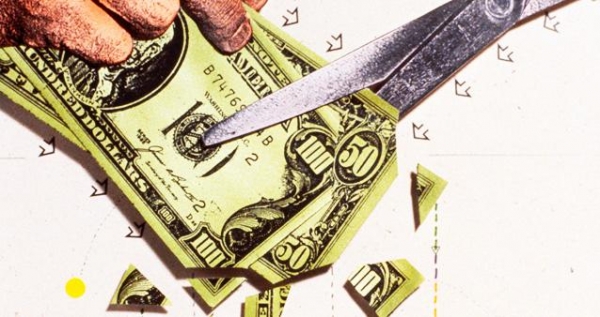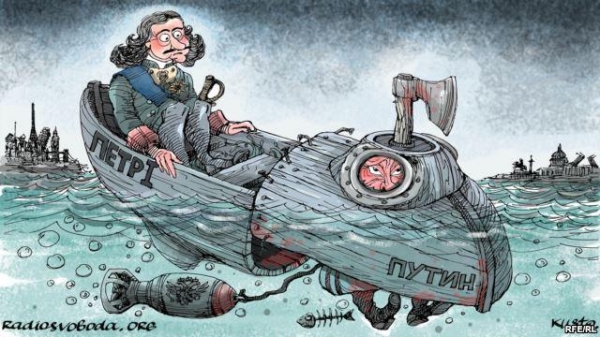Will we hear these words and will prevail if the corruption?
<dl class=”media image”> Illustration: GettyImages</dl>
Illustration: GettyImages</dl>
<big>+</big>T<small>-</small>
Less than five months after hacking the database of a Liechtenstein trust has brought overwhelming evidence that up to a quarter of the value of contracts concluded with the company “Rosgaz”, went into accounts of family members Alexander Motin as 134 out of the 170 members of the Federation Council voted for his removal from the post of President of the Russian Federation. Several thousand protesters on Bolshaya Dmitrovka, who with icons, who under the red flag, trying to recall how successful was held by the President just three years ago, the reunification of Northern Kazakhstan with Russia, were easily dispersed by Regardie. The Prime Minister, awaiting the fateful decision on Krasnopresnenskaya embankment, seemed more interested in live broadcast from London, where the global anti-corruption conference elected three months ago by the President of Ukraine, Pavlo Bidenko agree with the words of the British Prime Minister of Kashif Farooq, said in an interview with the young king George VII, that Ukraine is the most corrupt country in the world, but promised that his government has a clear plan of confiscation stolen from the budget and turned into European assets.
***
Can we expect that when we hear such news, even if we consider that these events happened last week, when Brazilian President Dilma Rousseff was set aside by the Senate because of allegations of corruption, and Nigeria’s President Mohammad Bukhari did not refute the words of David Cameron about the extent of corruption in his country? In my opinion, the probability of this is extremely low, and as Russia (where in the same week the government pointedly ignored the new data about the owners of the Panama offshore companies), and Ukraine (where the godfather of the President after amendments to the law on law enforcement bodies became the new Prosecutor General of the country) will soon be free from corruption countries. Why? At least in power of three even sad, but rather obvious circumstances.
First, in post-Soviet countries have not formed any independent economic “actors”, which would have created assets that are highly appreciated by the market, or the company is able to exist regardless of how they are treated by the highest representatives of the political elite. The reason is twofold: on the one hand, all major state arose through privatization, which was carried out on dubious rules and may be revised (as it de facto show business “Yukos” or “Bashneft”), and from the owners of these assets expect to disobedience is not necessary; on the other hand, any large business is possible only as a function of participation in the “development” of budget funds, as a space of free competition is extremely narrowed. In addition, it should be added that there are no “untouchables” of the rich (which, with varying degrees of conditionality, in the Imperial Russia were Yusupov, Sheremetev, Golitsyn, Demidov, Shuvalov, Orlov and others, in their wealth was a rival to the Imperial family, but independent from it). Pretty much all the most wealthy of Russian citizens are “appointed billionaires,” and none of them would support anti-corruption forces. All the “vertical business” is built on a consensus approval of existing practices, like the “vertical of power”. And the situation will only get worse as the decline of foreign investment, foreign trade and overall interest of the rest of the world in Russia, the main and almost the only source of money for the preservation and development of a variety of businesses will be the state budget. Therefore, the opposition of the business class, bureaucratic class, which is the basis of transparent and honest government in any developed country, we will not develop.
Secondly, the fight against corruption in Russia is unlikely because the enrichment of the political class over the last ten or fifteen years acquired a legal form. Created the public procurement system, conducted formal competitions and tenders, laws were passed that aimed at the legitimation of business officials and members of their families. We see this in the example of the majority of Ministers, many governors, deputies, heads of power structures. In this, we meet more than once or twice from the top, there is nothing illegal (as in the nominal possession of a citizens property, which obviously manage officials). In fact, corruption in its classic sense in Russia: officials “seriously” a long time no one “puts” — just most-dependent distribution of budget flows of the business long owned by them or controlled by them. You may recall the same decision in the case of Yuganskneftegaz, which was sold cheaply at auction, being saddled with huge tax demands, but once the asset reached the right hands, it turned out that the requirements were overstated, and the claim reconsidered. Formally, as in most other actions of the government and close to it business, everything was absolutely legal. Therefore, the second cause of the invincibility of Russian corruption is that it is almost impossible to mobilize the legal means, what never had any difficulties in most other countries, from Italy to South Africa. Accordingly, the entire “controversy” is “a war with windmills” that we have seen in the activities of the Fund of struggle against corruption, receiving from all levels answers, that all transactions in which its employees became suspicious, absolutely legitimate.
Third, and most important, the corruption in Russia is supported by the population. Usurped power of the business/political/military elite have adopted such laws and established such standards, compliance with which is almost impossible or extremely burdensome. Therefore, bribe is the surest way to solve problems — from domestic to business. The “lower classes” are a result of no less concerned in the preservation of the system than the “top”. Moreover, the economic basis of corruption is the basis for the existence of the Russian political system, because bribery is an individual act, and in the company of givers and takers may not request for collective action. Rather, they, on the contrary, only depreciate, never in modern Russia, business or other communities failed to achieve what was impossible to individual businessmen or lobbyists. It is corruption that is the basis of the current political consensus, which assumes individual enrichment “up there” and individual survival “down”. Life under the law involves corruption, and life rightly puts it supporter in a losing position compared to most members of society and therefore not in demand.
There is another circumstance that is difficult to analyze, but nevertheless cannot be ruled out. As in the time told to me by a colleague, asked, to put it mildly, rather poor Russian tourists, who came to Paris in a tour bus, whether they liked the city, in response she heard that “in General, of course, Yes, but people live a wealthy life, “we have something in Moscow, the car abruptly where the streets go”. And it spoke to people who until the end of days not earn a “Maybach” and “Bentley”, but in whose consciousness the wealth of favorites says a lot about the success of the country. Unfortunately, pathologically, we are not ready to ask ourselves about how flimsy the style, manner and the standard of living of our elites — and it allows her not to worry about the future. American is unlikely to resent the wealth of the successful stock broker or an Internet entrepreneur, because they have achieved such success, and, perhaps, he will succeed something like that. Russian is unlikely to pose the question of why a friend of the President happen to find $200 million in an offshore account, because every soul in a sure that, if he was friendly with the head of state, he probably would have been several billion. The wealth of the elite is perceived by us not as a “black mark” for the country, and as proof that the state is rich, powerful and able to reach those (mostly, by the way, non-economic and unrelated to the welfare of the majority of citizens) the purposes to which it is intended.
In view of all the indicated circumstances in Russia, in Ukraine and in other post-Soviet States in the fight against corruption in power may not have the opposition (as in most normal countries), and dissidents, who for the most obscure reasons, of a purely ethical nature do not like the status quo. The fight against corruption in this context is not political, but moral. In extreme cases it can result in the Maidan, but, as we can see Maidana come and go, but practices of the ruling elite do not change. More likely, however, alternatively, a more suitable individualized society: those who are willing to put up with the corruption involved in it, and who is not ready — to change the country in which they live, and leave, trying to find themselves in less corrupt societies. It is the constant presence of another world in which the rich officials from post-Soviet countries can hide the loot, while their less fortunate compatriots — to find a better life for themselves, is another reason that corruption in developing countries is unlikely to be defeated.
***
Although, if the acting President of Brazil Michel Temer or the same Mohammad Bukhari will demonstrate serious evidence to the contrary, I will be very happy. Honestly, very. Vladislav Inozemtsev








